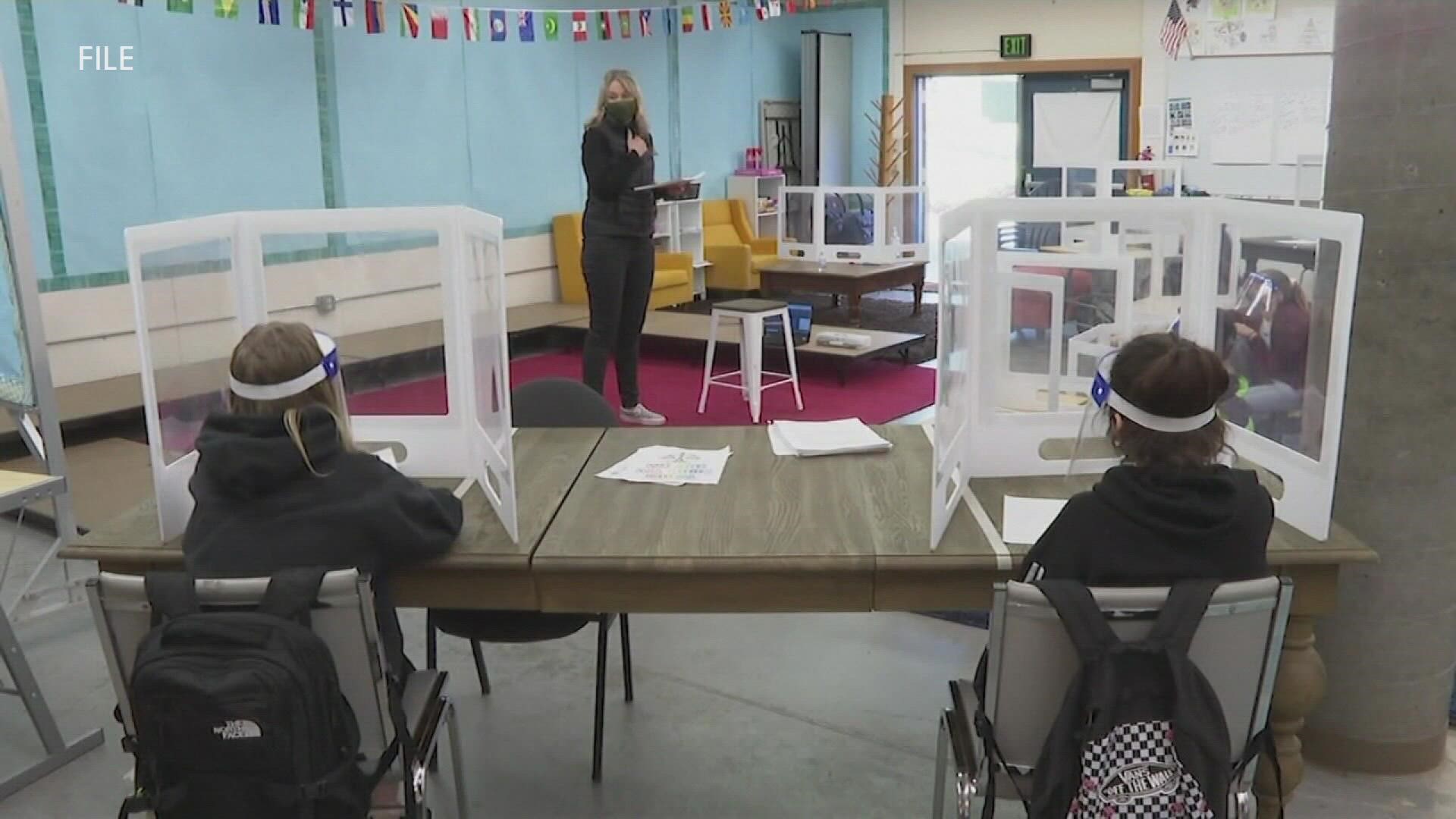A report from the National Education Association shows teacher burnout is a widespread and critical issue for educators around the country.
The report claims staff shortages have lead to such increased levels of burnout and that of those surveyed, 55 percent of educators are planning on leaving the field earlier than they originally planned.
The study consisted of a nationwide poll of 3,621 educators, all of whom are members of the National Education Association. According to the NEA report, some of the more alarming results include:
- Three-fourths (74%) of members said they've had to fill in for colleagues or take other duties due to staff shortages.
- 80% of members report that unfilled job openings have led to more work obligations for the educators who remain.
- 90% of members say feeling burned out is a serious problem (67% very serious).
- More than half (55%) of members plan to leave education sooner than planned because of the pandemic
- This is even higher among Black (62%) and Hispanic/Latino (59%) educators
"It seems to be such a lofty idea that a human being has to take care of their own needs and be well in order to support others," said Dr. Brandi Ainsley, a special education professor at Central Michigan University.
Ansley says burnout is nothing new, and has been documented and studied in teachers for the better part of four decades, but the past two years have made it far worse.
She's the creator of the SCORE (Self-Care Options for Resilient Educators) Program, an eight-week virtual course meant to give teachers more tools to reduce burnout. Things like assessing one's relationship with stress, developing healthy coping strategies and learning more about appropriate boundaries are all key components.
"We have to become comfortable putting ourselves first and our families first," she said. "Most people will respect the boundaries you set, and for the ones who do not, that has to be their problem."
Ansley says the program is on pause while she retools the lessons for pandemic educators. In February of 2020, her program saw significant benefit for a group of 28 student teachers compared to a control group that did not participate.
"It's not that you have to do SCORE or any packaged program in order to take charge of your health and empower yourself," she said. "That investment in yourself, that’s the part that you can control and that you can work on."
During her interview with 13 On Your Side, Ansley expressed concerns that her message would be misconstrued as a sales pitch for her program, when her true goal is to help educators. She mentioned the importance of finding a pace that works for the educators on their own time rather than making self care another item thrown on to their to-do list by administrators.
"To hear about the importance of taking care of ones self and that being part of the solution sometimes upsets teachers and staff because it feels like instead of that being yet another thing for me to do maybe take some of these responsibilities off of me," she said.
Ansley says burnout will not go away without significant systematic change. She said often times school administrators can view education as 'customer service,' and because of that, feel the need to side with parents at the expense of teachers expertise, perspective or mental wellbeing.
"They’re just gonna keep losing teachers," she said. "There’s no self care that the teacher can do if it’s an impossible work context."
►Make it easy to keep up to date with more stories like this. Download the 13 ON YOUR SIDE app now.
Have a news tip? Email news@13onyourside.com, visit our Facebook page or Twitter. Subscribe to our YouTube channel.

